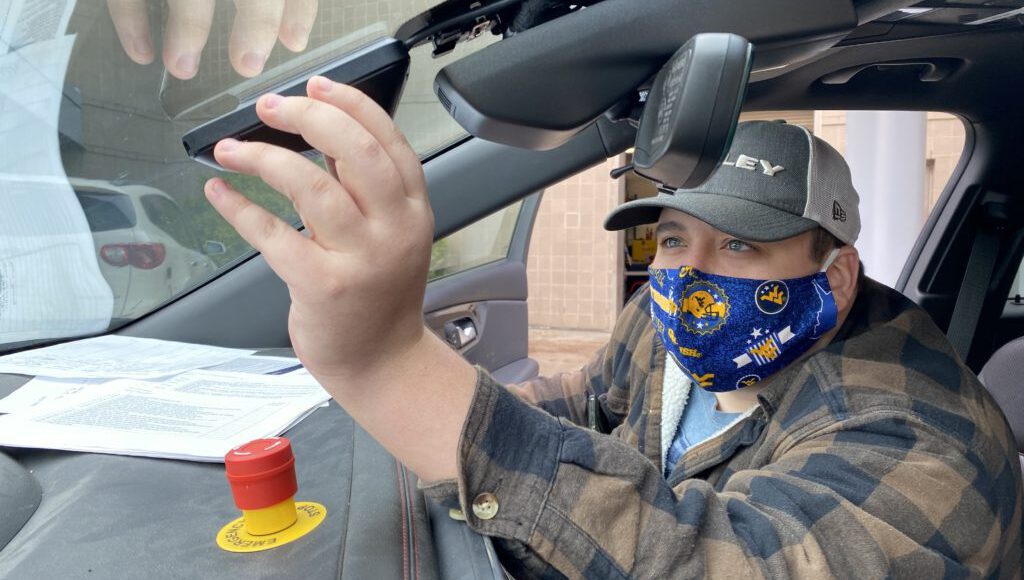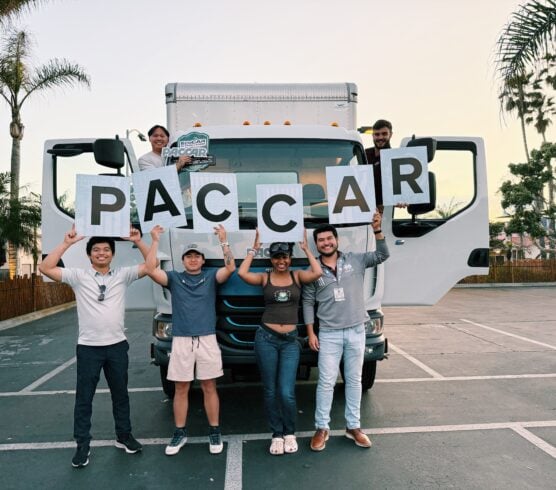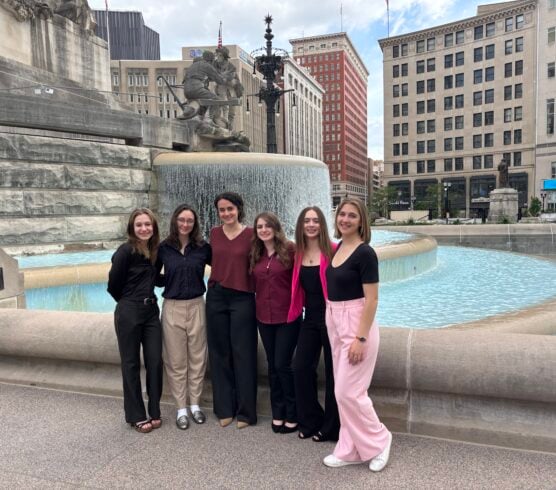Written by Ryan J. Alexander
Connected Automotive Vehicle Systems (CAVs) development is a key component to the EcoCAR Mobility Challenge and West Virginia University’s CAVs team is on track to meet its Year 3 competition goals by the end of the spring semester.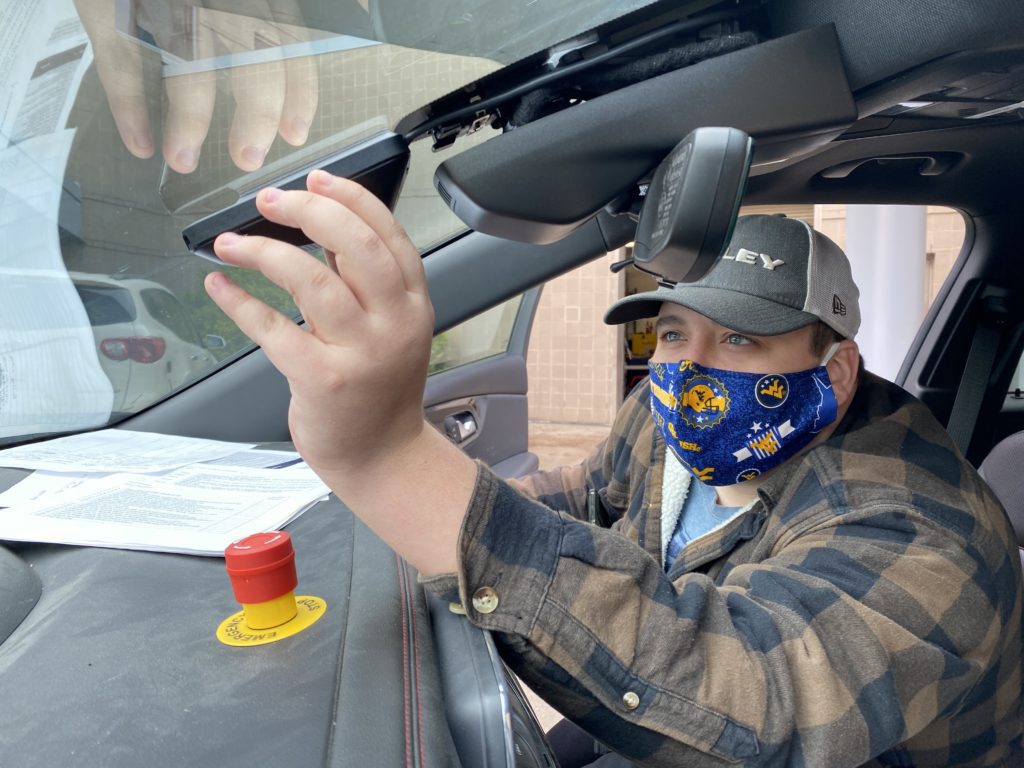
Year 3 has brought two team members into leadership roles for CAVs. Alex Colon, a graduate student studying computer science, and Clay Vincent, a graduate student studying electrical engineering, are the newest co-leads for the CAVs swimlane.
Both co-leads have practical hands on experience that bring new dynamics to the WVU EcoCAR team. Colon was a graduate teaching assistant for a year at WVU before rejoining the EcoCAR team (he was previously on the team as an undergrad) as a co-lead, and Vincent has worked at two chemical plants before and has his journeyman electrical license.
With having two new co-leads for the CAVs swimlane and navigating a global pandemic, there have been challenges along the way.
“COVID-19 has been the biggest challenge for our team to deal with this semester,” said Colon, “EcoCAR is a very hand-on course, so explaining all of the different features of CAVs over Zoom for our students to understand is challenging.”
On top of transitioning into leadership roles, both Colon and Vincent had to learn how to keep team members engaged with the project in a virtual environment. Despite the challenges of COVID-19, the CAVs team has worked hard to ensure a steady flow of progress to reach the Year 3 goal.
“For Year 3 we are specifically focusing on making the Blazer Level 1 autonomous,” said Vincent.
For the CAVs team to reach Level 1 autonomy, the team must be able to make the Blazer have longitudinal control, meaning the vehicle can accelerate and brake solely through CAVs algorithms. By turning the Blazer into a Level 1, and eventually Level 2 autonomous vehicle, it makes the vehicle more eco-friendly by improving fuel efficiency which is another important goal for the WVU EcoCAR team.
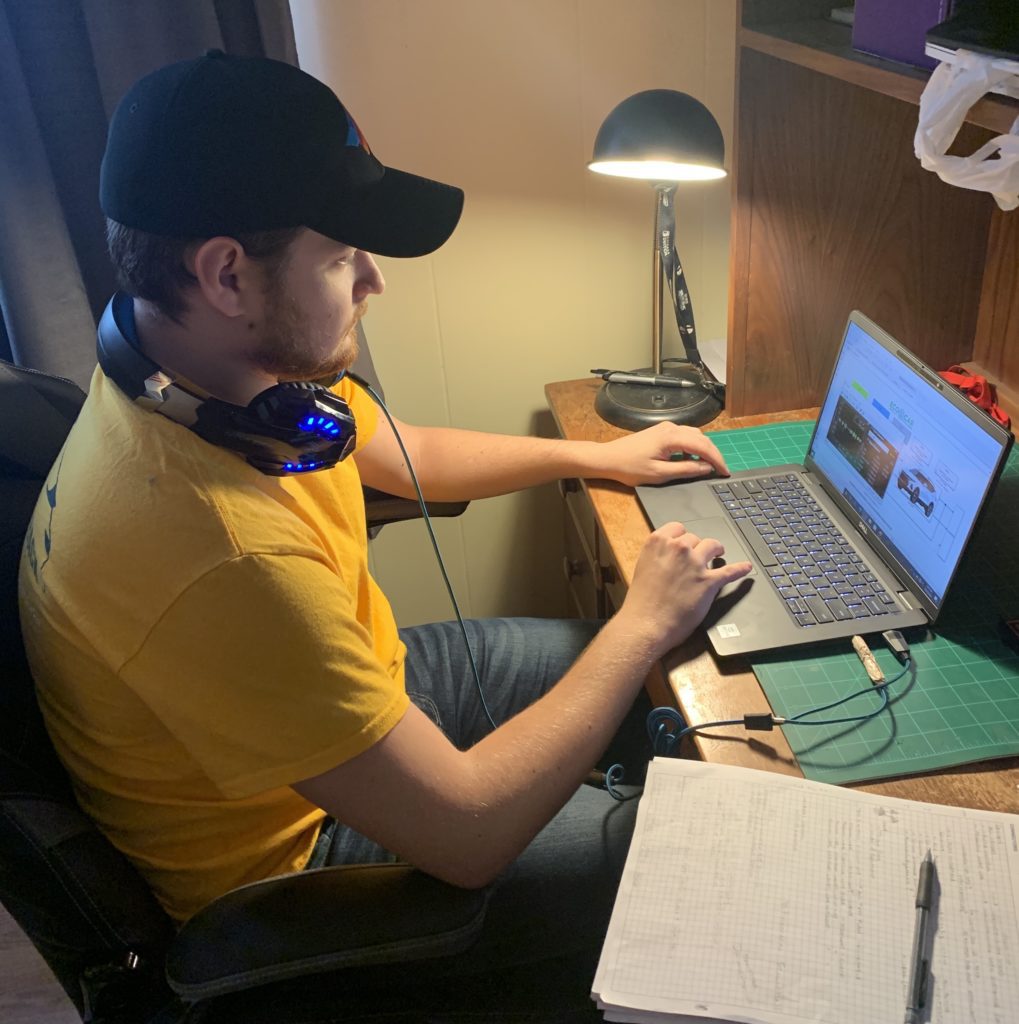 Both Vincent and Colon divide workload into different sub-teams. Vincent manages hardware and sensor fusion, and Colon manages the ACC and Human Machine Interface (HMI) teams.
Both Vincent and Colon divide workload into different sub-teams. Vincent manages hardware and sensor fusion, and Colon manages the ACC and Human Machine Interface (HMI) teams.
Both co-leads encourage involvement during online meetings to ensure there is progress being made by the team. Vincent and Colon run their meetings differently when meeting with students.
Vincent breaks his team down into smaller groups so there are more personal meetings with students. By doing so Vincent can be more interactive with his students.
Because of Colon’s background in teaching, he runs his meetings in larger groups but encourages what he calls “stand ups.” For instance, the group might be talking about the progress as a whole, but each student is required to speak about what they have done to contribute to the team goals.
Even though both co-leads have different approaches to interacting with team members, the end result is still the same; making sure each student is accountable for their part on the project. Making each student accountable for their contribution exposes them to professional experiences that they can expect to see in their careers.
The beauty of Advanced Vehicle Technology Competitions (AVTC) and specifically the EcoCAR Mobility Challenge is providing hands-on-experience for students.
“Companies like General Motors for example are doubling down on electrical propulsion and autonomy,” said Dr. Matthew Valenti, Chairman of the Lane Department of Computer Science and Electrical Engineering at WVU, “so what the students in EcoCAR are currently working on with the Chevy Blazer, especially in the CAVs swimlane, will be applicable for them in the future in a professional setting.”
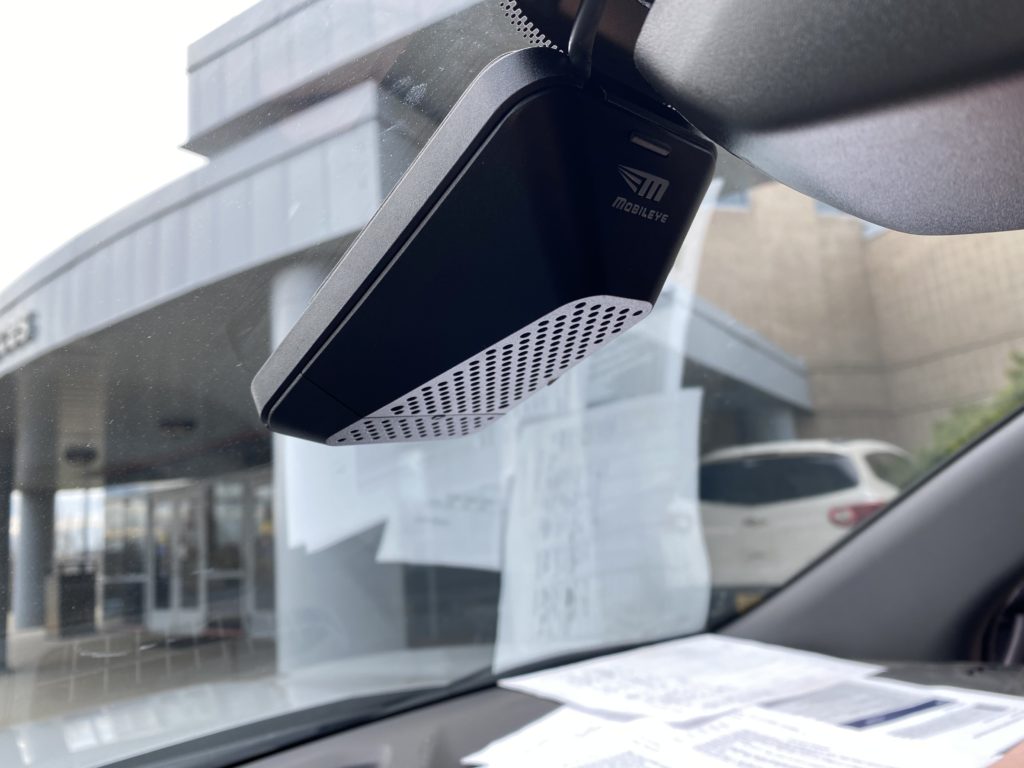 As the CAVs team wraps up the fall semester and plans for the spring, they have their sights on finishing integration on the Blazer and testing the various components before final competition. The work being done now is bringing the team one step closer to reaching the ultimate goal of Level 2 autonomy.
As the CAVs team wraps up the fall semester and plans for the spring, they have their sights on finishing integration on the Blazer and testing the various components before final competition. The work being done now is bringing the team one step closer to reaching the ultimate goal of Level 2 autonomy.
